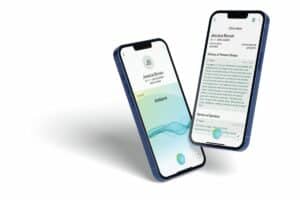Image Credits: Apple
A study published in Circulation showed that the Apple Watch’s ECG detected some arrhythmias other than atrial fibrillation. The device is currently cleared to take ECGs and general irregular pulse alerts, which could indicate potential cases of atrial fibrillation.
Continuing research by Stanford and Apple from the 2017 Apple Heart Study, which managed to enroll more than 400,000 participants and became one of the largest studies of its kind ever performed, has shown that the Apple Watch is capable of detecting other types of arrhythmic heart beat irregularities in addition to atrial fibrillation (AFib). Apple Watch currently offers potential atrial fibrillation detection and notifications as one of its core health features, introducing it to the device with its Series 4 update, which added an electrocardiogram (ECG) sensor.
The results of the Apple Heart Study proved that, while it’s true to say this feature will tell you when your heart might give out and be diagnosed with conditions such as atrial fibrillation or early signs related to high cholesterol levels – which can then prompt users into taking action before things get worse than they already are- but in no way does its accuracy exceed medical devices.
But over the years there have been many verified stories of Apple Watch users who credit the AFib notification feature as the reason they were able to catch an otherwise asymptomatic issue early thanks to follow-up care from a doctor.
The new study, published in the American Heart Association’s Circulation Journal found that nearly a third of participants who had no AFib detected using an ECG patch after receiving notification were diagnosed with atrial fibrillation within two years. The Apple Watch may have been detecting cases early which other monitors missed due to their inability detect irregular heart rhythms on physical screens rather than through remote notifications alone
The recent research demonstrates how efficient this technology can be when paired up against traditional methods for monitoring individuals’ health status – such as electrocardiograms (ECGs) keyed out paper based systems popular during earlier decades
New sensors and technical capabilities for the Apple Watch is always a hot topic, but we’ve already seen that research from large-scale studies like the Apple Heart Study can provide an easy way to make use of existing hardware.
Apple Watch is showing promising results in terms of detecting other heart arrhythmias and possibly even fits into the category for future Health features.







